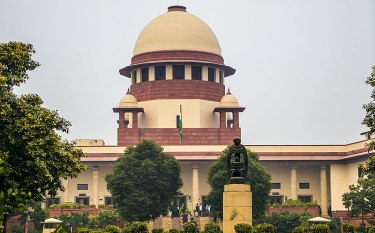
In an important ruling that strengthens accountability in law enforcement, the Supreme Court of India determined on 13 December 13 2024 that police officers who file false cases or fabricate evidence can be prosecuted without prior governmental approval. The judgment effectively dismantles a protective barrier that law enforcement officers previously used to shield themselves from immediate prosecution in cases of deliberate misconduct.
The ruling came from a bench consisting of Justices J.B. Pardiwala and Manoj Misra, who delivered a comprehensive judgment that fundamentally reshapes how police misconduct cases can be pursued. The court emphasized that misuse of power by public servants cannot be protected under Section 197 of the Code of Criminal Procedure (CrPC), drawing a clear distinction between legitimate police duties and acts of misconduct.
“It can be no part of the official duty of a public official to lodge a bogus case and fabricate evidence or documents,” the court stated in its order, establishing an unambiguous boundary between protected official actions and punishable misconduct. This definitive statement challenges the previous practice where police officers could potentially delay prosecution by claiming their actions fell under official duties.
The case that catalysed this significant ruling originated from a controversial Madhya Pradesh High Court decision. The High Court had dismissed criminal proceedings against police officers accused of fabricating alibi documents in a murder case, citing the absence of prior sanction under Section 197 CrPC. The Supreme Court, however, overturned this decision, declaring that such protection does not extend to acts of misconduct that fundamentally violate the principles of law enforcement.
In its detailed judgment, the court outlined several specific examples of misconduct that fall outside the scope of official duties. These include threatening to provide tutored statements, obtaining signatures on blank papers, illegal detention of accused persons, and conducting harassment-driven searches. The bench emphasized that allowing such actions to hide behind the requirement of prior sanction would enable public servants to misuse their positions as a facade for illegal activities.
The ruling addresses a crucial aspect of public service law. While the Prevention of Corruption Act and CrPC typically require prior approval from appropriate government authorities before prosecuting public servants for actions performed during their official duties, this new judgment carves out a clear exception for cases involving deliberate misconduct and abuse of power.
The Supreme Court's decision is particularly significant as it balances the need to protect legitimate police actions with the imperative to prevent abuse of power. The judgment noted that the mere fact that a wrongful act arose from official duty does not automatically bring it within the purview of Section 197 CrPC. This distinction is crucial for maintaining accountability while ensuring that legitimate police work remains protected.
The bench also provided guidance for lower courts, stating that when cases against public servants are at preliminary stages, courts should not hastily quash proceedings. Instead, they should allow evidence to be presented before the appropriate trial court to determine whether the alleged acts fall within the scope of official duties.
As a direct consequence of this ruling, the Supreme Court has directed that the trial against the respondent police officers in the Madhya Pradesh case should proceed, setting a precedent that will likely influence similar cases across the country.




